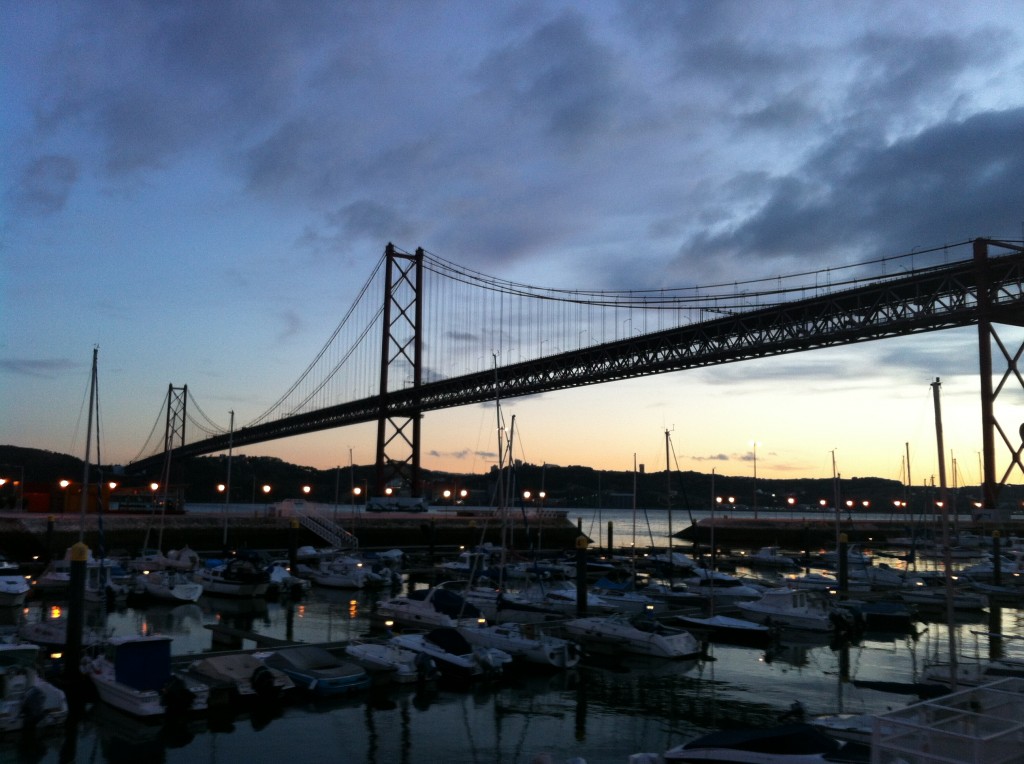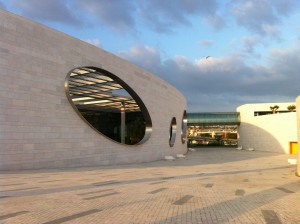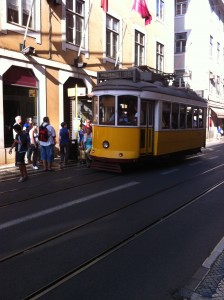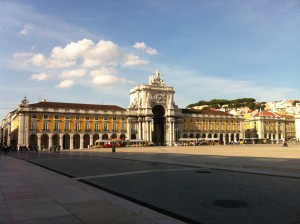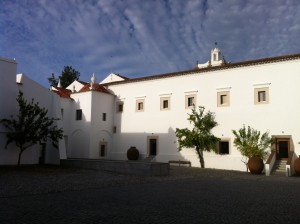 The tranquility of the Alentejo (I am at an old convent in Arraiolos close to Évora) has given me time to reflect on my time in Lisboa. And what I will miss when I return to England at the end of the week.
The tranquility of the Alentejo (I am at an old convent in Arraiolos close to Évora) has given me time to reflect on my time in Lisboa. And what I will miss when I return to England at the end of the week.
I like
- Food & Drink: This is a city where food is an obsession and given appropriate time for consumption (it is rare to see someone eating as they walk). The Portuguese spend more (as a proportion of disposable income) on food and drink than just about any other race and it shows. You can buy a perfectly acceptable bottle of wine for less than €2 a bottle in a supermercado; pequeno-almoco (breakfast) is much more fun taken standing up and always seems to involve a bica (small strong coffee) and a pastel de nata; a good meal for two with a bottle of wine rarely exceeds €40; and fruit and vegetables always seem to have more taste.
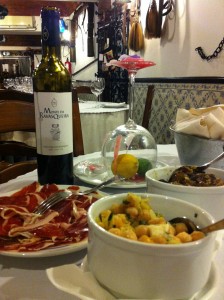
- Courtesy & respect for the individual: the elderly are given respect, seats are always offered for those less capable of standing and people move to make way for others so everyone can board an overcrowded train, tram or bus.
- Transport: Lisboa has an integrated transport system that (once mastered) is easily navigable. The card shown below is the one to choose since it allows multiple journeys on all modes of transport at a knock down price. What is not as easy is finding the tabaceiros (tobacco kiosks) that sell the card and also top it up. Carris buses and trams are reliable and the drivers well attired.

- It’s a walking city and safe: Pavements are constructed very much as they’ve always been, streets are interesting and distances between the main places of interest manageable. Serious crime is rare and its citizens are welcoming.
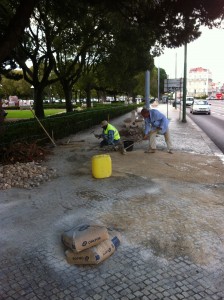
- Climate & location: Lisboa is blessed by a temperate and warm climate throughout the year. It is still beach weather in Outobro and rare for the thermometer to go below 8c. Orlando (my language teacher) said his (overcoat) is 25 years old and as good as new! Lisboa is not far from anywhere else in Portugal – Oporto is but 3 hours by road (as is the Algarve); the motorway network is among the best in the world and empty as no one except touristas can afford to use it; and some of the greatest beaches (and waves) can be found less than 1 hour from the capital.
it takes time to get used to…
- Inbuilt inertia: this is a place where getting ‘things’ done requires lengthy discussion and the involvement of multiple layers of bureaucracy. The unsuspecting visitor needs to set aside at least 2 hours for a task that elsewhere might take 1. Double that if government agencies are involved. Yesterday’s visit to the Financas to pay local taxes was an example. On arrival the visitor is faced with an array of choices each requiring a ticket to join a queuing system. After a couple of unsuccessful attempts (the system at the payment counter is not linked to the counter that can tell you what the charge is for) it becomes apparent that the trick is to hedge your bets and take a ticket for each section in the vain hope your numbers come up in the right order – its just like doing the lottery only more time consuming. And to cap it all if the card swipe system is not functioning a trip to a cash machine is needed to settle the tax!
- Cocó de cão: Englishmen tend to walk with their heads looking upwards. This is a mistake. Like many European cities Lisboa is blighted by dog turds strategically situated on pavements for the unsuspecting estrangeiro (foreigner) to tread in.
- Fumar: The Portuguese seem to have turned to the cigarette to ward off the mental effects of the Troika’s austerity programme. There is a smoking ban yet as my Benfica champions league experience proved it is enforced sporadically, which can be irritating if you don’t like inhaling others’ smoke.
- Aparências: Face is important. Most cars are in good condition; people especially businessmen/women are very well turned out; and formality over greetings and goodbyes are very important. Two kisses suffice for most occasions but one is considered appropriate for “as tias”. This ‘face’ issue also results in unwillingness by the business community to share experiences and hinders the exchange of knowledge among peers. At an organizational level bright managers are leaving the country (perhaps for good) frustrated by the lack of a collaborative environment with future prospects blocked by a layer of middle management well versed in the techniques of self-preservation.
- Arrivals & departures: Time management is not a core competency, an ‘on time’ departure being a concept alien to many. A range of reasons is summoned to explain why people arrive late: heavy traffic is usually the first choice closely followed by a misunderstanding of what was agreed. Rarely is there an admission that the late departure is due to a last minute change of clothing or confusion over venue and time. And it can take up to 15 minutes to say goodbye especially to relatives involving “adeus / até logo” in the main room, the hall and at the front door. At the end of a long evening this can prove a challenge to the uninitiated.

